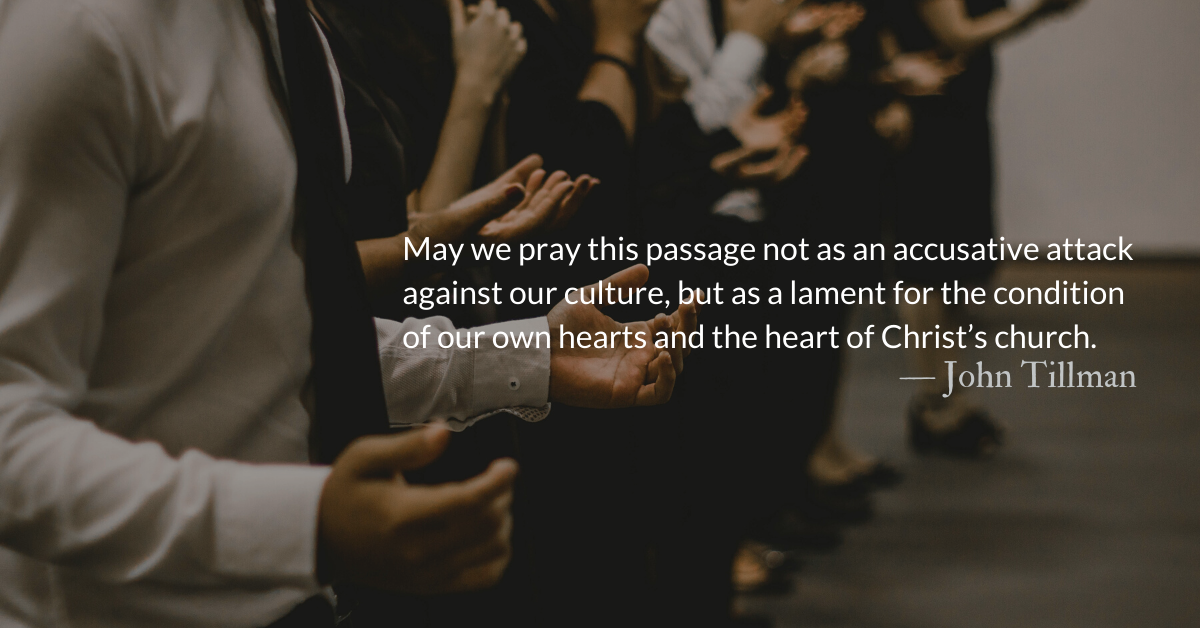Scripture Focus: 2 Timothy 1.3-6
3 I thank God, whom I serve, as my ancestors did, with a clear conscience, as night and day I constantly remember you in my prayers. 4 Recalling your tears, I long to see you, so that I may be filled with joy. 5 I am reminded of your sincere faith, which first lived in your grandmother Lois and in your mother Eunice and, I am persuaded, now lives in you also.
6 For this reason I remind you to fan into flame the gift of God, which is in you through the laying on of my hands. 7 For the Spirit God gave us does not make us timid, but gives us power, love and self-discipline.
Reflection: Remembering Relationships
By John Tillman
One of the best things about Facebook is how it reminds us of our relationships. Cynically, we could grouse about how this is solely an attempt to increase engagement, but that’s not the point…
On birthdays, Facebook often recommends that we share memories in the form of previously tagged photos as part of a birthday greeting. (I expect a few on my birthday.) Most of these photos are not only reminders of the relationship but of happiness and joy.
Much of the first chapter of Paul’s final letter to Timothy contains this kind of reminiscence. Paul calls to Timothy’s mind the key moments of their relationship and the key moments of Timothy’s relationship with Christ. Images flash by:
The faithful women who taught him the faith, his grandmother, Lois, and mother, Eunice…
Paul laying hands on Timothy…
The spark of spiritual gifts in young Timothy’s life…
But the memories are not all positive. There is also the image of Timothy’s tears the last time he was with Paul. There are images of Paul’s sufferings: the many beatings, stonings, arrests, and trials. The most concerning image that arises is of Paul alone—abandoned by everyone in a situation in which Timothy was powerless to help.
The life of faith, if lived rightly, is one of great highs and great lows. At times we may feel powerful, as if the very river of life was bursting out to bless those around us. At times we may feel weak and dry, as if we cannot summon enough spit to swallow. In the highs and the lows of the Christian life, it is helpful to share our burdens with others. Paul shared them with Timothy. They both shared them with Christ himself.
We, if we are followers of Christ, can bring to mind images of precious or difficult moments in our life of faith. Let some of those rise to your mind now. When a prayer was answered… When a friend chose faith… When a blessing surprised you… When a mentor or leader set you up for success or gave you the opportunity you needed…
Even when we feel alone, like Paul, Jesus never leaves us. And even then, we can reach out to others in Christ’s name. Reach out today to a friend. Remind yourself, and them, that they are not alone on the journey of faith.
Divine Hours Prayer: The Call to Prayer
Come and listen, all you who fear God, and I will tell you what he has done for me. — Psalm 66.14
– From The Divine Hours: Prayers for Summertime by Phyllis Tickle.
Today’s Readings
Ezekiel 46 (Listen 4:49)
2 Timothy 1(Listen 2:37)
Read more about The Gospel and the Year of Freedom
Scripture challenges and convicts all man-made systems, governments, and economic practices of their errors and hubris.
Read more about Christ, Our Double Portion
When Christian heroes, mentors, or friends pass, we often have an emotional and a spiritual reaction.











